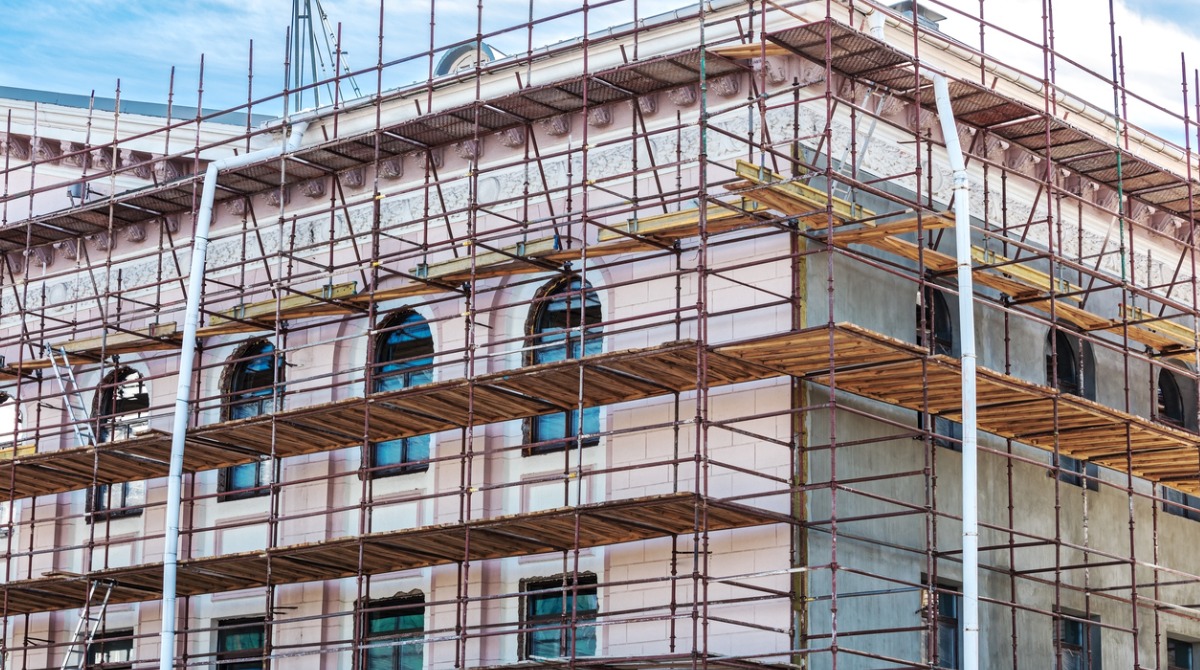
Chicago's Loop, the heart of the city’s business district, is set for a transformative makeover. Mayor Brandon Johnson is advancing a $151.2 million initiative, originally conceptualized by former Mayor Lori Lightfoot, to convert four aging office buildings into vibrant residential spaces. This revitalization effort aims to tackle the dual challenges of vacant office spaces and the scarcity of affordable housing in the downtown area.
The project, with an estimated cost of $520 million, plans to introduce 1,000 new living units, 319 of which will be affordable. This plan is under scrutiny from various city commissions and awaits final approval by the City Council. The development, potentially starting in early 2024, underscores a strategic move to repurpose approximately 5 million square feet of unused office space into residential units, thus addressing the Loop’s pressing issues.
Construction and Design Dynamics
From a construction perspective, these projects present a unique set of challenges and opportunities. The proposed developments at locations like 79 W. Monroe St. and 111 W. Monroe St. not only demand substantial construction efforts but also careful preservation of historical elements, such as the "Weather Bell" sign at the Bell Federal building. These sites will evolve into mixed-use spaces, blending residential units with retail and community amenities, thereby revitalizing the urban landscape.
The Chicago Tribune reports that the four approved proposals for transforming aging office buildings in Chicago's Loop into residential units, as part of Mayor Brandon Johnson's initiative, include the following:
79 W. Monroe St. (Bell Federal Building)
- Developer: Campari Group
- Project Cost: $64.2 million
- TIF Assistance: $28 million
- 117 Units with 41 designated as affordable
- The development will span eight floors and include the restoration of the iconic “Weather Bell” sign. The project is seeking city landmark designation and federal historic tax credits
111 W. Monroe St.
- Developers: Prime Group Inc and Capri Investor LLC
- Project Cost: $202.8 million
- TIF Assistance: $40 million
- 345 Units with 105 affordable
- The redevelopment covers 14 floors across two adjacent buildings. Potential funding sources include low-income housing tax credits, tax-exempt bonds, a federal loan, and historic tax credits. Plans also include a 228-key hotel within the complex, subject to city landmark designation for property tax breaks
208 S. Lasalle St.
- Developer: Prime Group
- Project Cost: $122.7 million (originally $130 million)
- TIF Assistance: $26.2 million (originally $33 million)
- 226 units with 68 affordable
- This project will transform the former Continental and Commercial National Bank building, reducing the total number of units from the original 280. Financing includes TIF, low-income housing tax credits, tax-exempt bonds, and a federal loan
30 N. Lasalle St.
- Developer: Golub & Co
- Project Cost: $130.2 million
- TIF Assistance: $57 million
- 349 units with 105 affordable
- This project includes ground-floor retail, added green space, and potentially office spaces. The development plans feature a terrace on the 11th floor
Strategic Funding and Economic Impact
The financial blueprint of this redevelopment includes a mix of public funding, tax increment financing (TIF), federal loans, and private investments, highlighting a collaborative approach to urban development. This strategic funding aims to stimulate construction activities, create jobs, and enhance the local economy while fostering a community-centric urban environment.
Technological Integration and Sustainable Practices
Adopting modern construction technologies and sustainable practices will be pivotal in these redevelopment projects. The construction process is expected to integrate green building standards, energy-efficient designs, and smart technology to create sustainable and livable spaces for future residents.
Long-term Vision and Community Impact
The Loop’s transformation is envisioned as a long-term strategy to revitalize downtown Chicago, making it a more attractive and livable area. The inclusion of affordable housing units in these developments is a significant step towards creating a more inclusive urban environment, aligning with Mayor Johnson’s commitment to equity and affordability.
For the construction industry, this initiative represents a substantial influx of opportunities, driving economic growth and community development. As the city embarks on this ambitious journey, the construction sector is poised to play a crucial role in shaping the future of Chicago’s urban landscape.
Posted by Judy Lamelza






